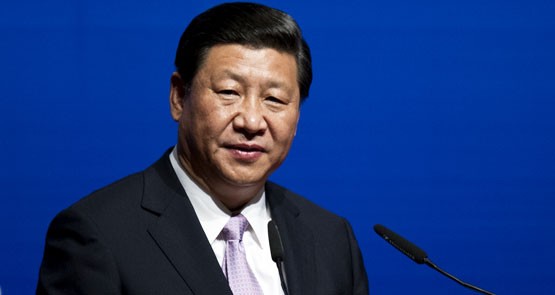
With the Abbott government promising to repeal the carbon tax and the Liberals’ own Direct Action plan looking dicey, the Chinese government might be doing more to tackle greenhouse gas emissions than the Australian government.
The Climate Institute’s Erwin Jackson talks to Washington-based Ailun Yang, a senior associate on the major emerging economies team of the World Resources Institute, about China’s climate initiatives. The WRI is a global research organisation that works across resource sustainability, and Yang leads the efforts to build the case for low-carbon development in a number of major developing countries such as China and India …
Where is China at with pricing carbon?
China has an overall carbon intensity target of reducing carbon emissions per dollar of economic output by 40% to 45% in 2020 from 2005 levels. Policy options of carbon trading and carbon tax — both could put a price on carbon — have been discussed. In June 2013, China launched its first pilot emission trading program in the city of Shenzhen. This was the first of the seven proposed pilot GHG cap-and-trade schemes in China, which the country has been developing since 2011.
What have been some other recent policy announcements from China?
The Air Pollution Prevention Action Plan was released on September 12th, which put a coal consumption cap on Beijing, Tianjin, Hebei and Shandong provinces from 2012 to 2017. These provinces consume one-fifth of all coal in China and will have to cut their consumption by 10% in just four years. The action plan also bans the construction of any new coal-fired plants in the three city clusters around Beijing, Shanghai and Guangzhou. Although this is not strictly a climate policy, it will have major implications for China’s climate actions, since coal is the main source of the carbon emissions.
What are the drivers behind these measures; are they about other things besides the climate?
The Chinese government has acknowledged climate change as a real and significant threat. However, besides climate change, there are many other imperatives behind these measures. They include pressures for economic restructuring, energy security, local environmental concerns for air pollution and water scarcity, etc. Among those, the air pollution issue has probably caught the most international media attention. The repeated severe smog episodes in major Chinese cities in the last couple of years have caused serious public frustrations, which put environmental protection high up on the government’s agenda.
Some analysts suggest China’s moves to restructure its economy, tackle air pollution and drive investments in new industries will see the nation’s coal consumption peak sooner than expected. What is the status of new build coal-fired power stations in China? What is a realistic prospect for the peak in Chinese coal consumption?
Over the past couple of years, there are some dramatic changes in the perception of the role of coal in China, where the dominance of coal is no longer considered unshakable. Looking at the growth of new power generation capacity, this year is likely to be the first time where the non-fossil sources will be bigger than coal in new instalment. Already in 2009, the investment in renewable energy power generation overtook that of coal; now we’re seeing this shift of reinvestment results in actual installed capacity. Various academic and industry analysis have predicted that Chinese coal consumption could peak by 2020, followed by a deep decline.
What do all these developments mean for investors in Australian fossil fuel projects that are aimed at the Chinese market?
Uncertainties with the Chinese coal demands could add on to the risks of both coal mining and other infrastructure development projects in Australia.
The new Australian government has announced it will try and repeal the carbon price scheme. Has the Chinese government said anything about this? What do you think the Chinese government’s reaction would likely be?
I can’t predict the reaction of the Chinese government. However, this is a time where more and more governments have realised the benefits of tackling climate change and understood low-carbon economy as an important way to generate new competitiveness. The decision of the Australian government to repeal the carbon price scheme could be sending Australia in the opposite direction of the global trends. Also, in the face of intensifying climate disasters, countries around the world need to work together to tackle this global challenge. The absence of Australia, in my personal opinion, would be a big pity.







Crikey is committed to hosting lively discussions. Help us keep the conversation useful, interesting and welcoming. We aim to publish comments quickly in the interest of promoting robust conversation, but we’re a small team and we deploy filters to protect against legal risk. Occasionally your comment may be held up while we review, but we’re working as fast as we can to keep the conversation rolling.
The Crikey comment section is members-only content. Please subscribe to leave a comment.
The Crikey comment section is members-only content. Please login to leave a comment.